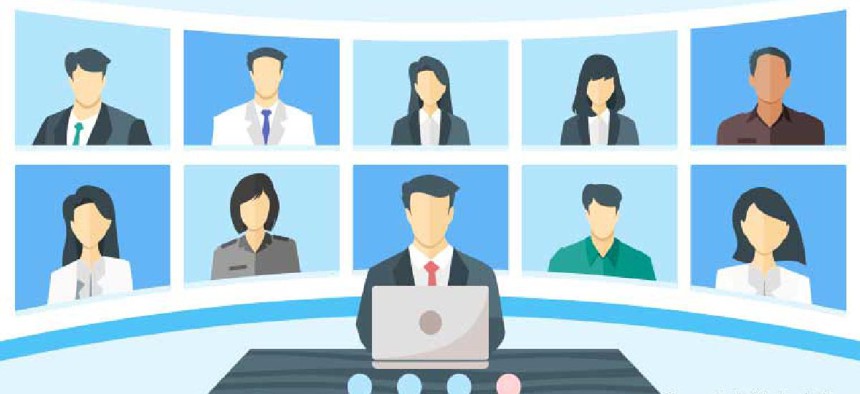All tech on deck: White House calls for online collaboration, services delivery

Agencies are being asked to look to already available tools for collaboration and citizen service delivery as government minimizes in-person interactions during the coronavirus pandemic.
The Office of Management and Budget is asking agencies to use technology “to the greatest extent possible to support mission continuity,” Margaret Weichert, OMB deputy director for management, wrote in a March 22 memo to agency heads.
Agencies are being asked to look to already available tools for collaboration and citizen service delivery as government minimizes in-person interactions during the coronavirus pandemic, including:
- Updating their .gov websites to improve customer service and ensuring citizens are directed to the appropriate online and phone resources for services.
- Improving collaboration by sharing services and technology across the enterprise, increasing the number of licenses and moving some activities to online collaboration forums.
- Using digital forms and electronic signatures as much as possible.
- Updating network infrastructure with the latest configurations and patches and ensuring newly remote employees understand the security controls they must follow, including the prohibition against forwarding government work to personal devices and unauthorized use of social media.
Authentication of users presents a more complex issue, and Weichert's guidance instructs agencies on managing facilities and network access for federal employees who are new to remote work or who are newly hired and don't yet have PIV cards.
For feds who are experienced teleworkers, there is tight integration between their PIV cards and agency networks. Agencies just now spinning up telework for staff who have not had much experience will likely need to support remote workstations without cards and card readers. A security key or, if a hardware token isn't an option, a mobile app that supports two-factor authentication will help bridge the gap, according to Jeremy Grant, the coordinator of the Better Identity Coalition and a managing director at Venable.
"The government’s approach to authentication for the last 15 years has relied on issuance of a smart card containing PKI certificates through a robust in-person process," Grant said. "While that has set a high bar for security, it’s not practical in a crisis where it’s not safe to bring people in to a face-to-face setting. This memo gives agencies some much-needed flexibility."
The memo also previewed coming guidance from the Office of Personnel Management that allows agencies to delay fingerprinting for onboarding feds taking on mission critical roles.
Grant said that right now, the lack of a national digital identity standard will inhibit service delivery.
"Many services could be delivered remotely if America had a robust digital identity infrastructure – but we don't – and thus the partial shutdown," Grant said, in reference to the pivot to focus agencies on mission-critical activities. "I expect the need for more investments here to get additional attention in the months ahead."
A longer version of this article was first posted to FCW, a sibling site to GCN.
NEXT STORY: Smartphones help track global virus spread






